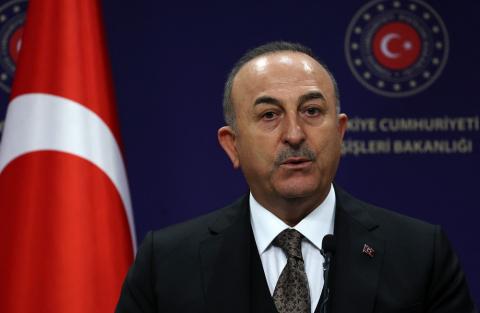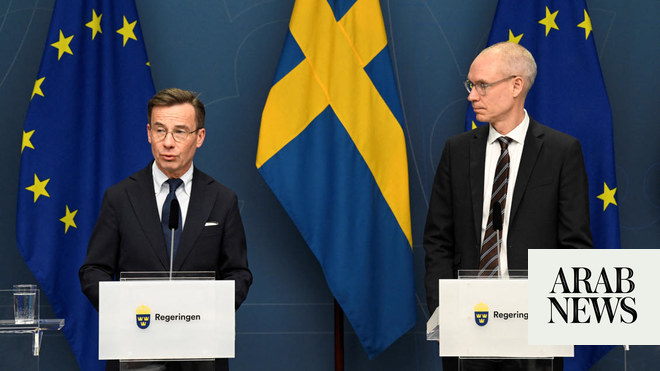
NATO"s plans to add two more Nordic countries to the military alliance "will likely drag on" as Turkey puts a block on accepting Sweden and Finland as members.
That"s the conclusion of a new report from the International Crisis Group which found that Turkey was "unlikely to simply back down on its demands" to Stockholm and Helsinki.
"It is using the occasion to raise grievances it has felt for a long time, mainly with what it sees as permissive attitudes in Western capitals toward the Kurdistan Workers’ Party (PKK) — the insurgent group that, along with the US and EU, it lists as terrorist," the report said.
This latest downbeat assessment comes as NATO leaders are due to meet Tuesday in Madrid for a summit which was expected to see Finland and Sweden ushered into the alliance.
Finnish President Sauli Niinistö, Swedish Prime Minister Magdalena Andersson and Turkey"s President Erdogan will meet with NATO Secretary General Jens Stoltenburg on Tuesday in the Spanish capital, but despite weeks of talks between senior officials little progress seems to have been made.
"NATO unites nations,” Niinistö told journalists on Monday at his official residence in Helsinki, after meeting with visiting US Senators.
The 73-year-old president tried to paint a positive picture ahead of the Madrid summit and said that negotiations with Turkey were "already looking somewhat better" than a week ago - with the Turks not cancelling any meetings recently.
However, Niinistö wouldn"t be drawn on whether he thought there could be an agreement at the NATO leaders" gathering, saying instead that Turkey has made more specific demands from Sweden than Finland.
Researcher Matti Pesu from the Finnish Institute for International Affairs wrote on Monday that he was also somewhat optimistic that a solution could be found, although he noted that many Turkey experts were much more pessimistic.
"The clear lowering of expectations gives Erdogan the opportunity to present himself as a gracious and solution-oriented player who, against all expectations, will meet and understand the situation in Finland and Sweden and the common interests of the alliance," wrote Pesu.
"The leaders" meeting in Madrid will be key. The attention it will receive will be considerable. Erdogan"s flexibility can win him a lot of goodwill and visibility. A leaders" meeting in Madrid without any result would erode NATO"s prestige."
Mina Ålander from the German Institute for International and Security Affairs summed up her thoughts ahead of Madrid saying: "Such a high-level meeting is good but I remain doubtful that there will be a breakthrough. As I’ve said before - it would be a positive surprise if yes."
The Turks have a laundry list of grievances with Finland and Sweden they want to sort out before agreeing to lift their NATO membership blockade.
It includes preventing recruitment, fundraising and propaganda activities of the Kurdish PKK group. Turkey also wants the extradition of more than 30 people by Finnish and Swedish authorities - some are alleged PKK activists, others are alleged members of the Gülen movement which Erdogan believes was behind a 2016 attempt to overthrow him.
The latest opinion polling in Finland however, released on Monday, shows little appetite to give in to Turkish demands.
A survey for Helsingin Sanomat newspaper found a clear 70% of Finns don"t think there should be any change in legislation, or a change in principles, to appease Turkey. Only 14% thought Finland should accede to the Turkish demands.
The toughest position on Turkey was taken by supporters of the Greens and Left Alliance political parties, while far-right Finns Party supporters were the most willing to make concessions.
The same poll found that 79% of Finns are now in favor of NATO membership - a record high since polling first began on this subject more than two decades ago - with 10% against joining NATO, and 11% unsure. — Euronews












